Five hurdles between Android and mobile gaming domination
Droid domination isn't far off
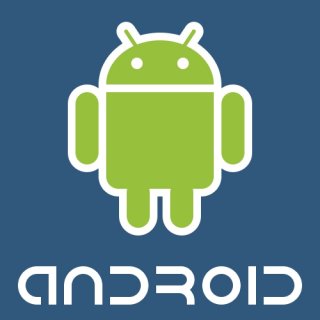
The Android operating system is doing great guns. Its massive array of compatible handsets and tech-savvy open nature means Google’s sold more devices running its OS than Apple in recent months, and Android is quickly gaining on the iPhone’s North American lead
It’s also had more than a billion app downloads and the Market features almost 100,000 tools, games, and programs to stick on your Google-powered blower. It’s successful, ubiquitous, and loved by the tech community.
So why does it stink as a gaming device? Mobile gaming is almost entirely in the domain of the iPhone, with indie developers and giant publishing houses alike choosing Apple’s fleet of sexy devices as their first, and sometimes only, destination for gaming.
But while Android is finally seeing games and developers - from Angry Birds to OpenFeint - migrate to its open marketplace, there are still some massive hurdles Google needs to pass before the Android can be classed as a serious piece of gaming hardware.
Here are the top five the big G should concentrate on:
Market The Android Market is a mess: an absolute junkyard of garbage apps and free soundboards and copyright infringing ring-tones, all hiding the gems about seventeen miles beneath the surface.
The Android Market is a mess: an absolute junkyard of garbage apps and free soundboards and copyright infringing ring-tones, all hiding the gems about seventeen miles beneath the surface.
Google has an official website for the Market, but it's a pretty spartan selection of interesting apps, without any links to even download them. With no web-version of the store, it’s really difficult to share great games with pals, and you’re forced to browse the store on the device itself.
So how can Google, the self-proclaimed king of search, make finding stuff you actually want to download and buy, such a pain in the ass?
Take some much needed pointers from Apple: give recommendations of what to buy based on your installed apps, point out cool new downloads frequently, and give users a way to browse and even purchase applications, over the web.
Pricing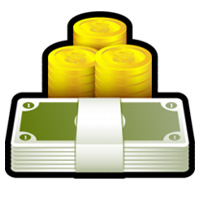 Writing on the company’s official website, Digital Chocolate founder Trip Hawkins bemoans a strange Google policy: on Android, you can return any app within 24 hours for a full refund.
Writing on the company’s official website, Digital Chocolate founder Trip Hawkins bemoans a strange Google policy: on Android, you can return any app within 24 hours for a full refund.
“When so many other things on the app store are already free and everything else is free for 24 hours, why would anyone pay for a game?” Hawkins writes. He believes it's a way to please customers without policing the store, but Hawkins thinks Google should be more vigilant about what goes up, and remove this feature altogether.
Plus, the Digital Chocolate CEO says, “many current devices do not have one-touch payment because they are not integrated with mobile carrier billing systems.” Annoying for customers, and a fix that’s coming in 2011 might be too late.
Global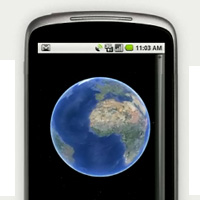 The Android Market is available in 46 different countries - which is brilliant, at least for free apps. Because if you want to buy applications, only 14 countries actually have paid downloads on their stores. And if you want to sell an application, there’s even fewer - only nine countries can register as a Google Checkout merchant.
The Android Market is available in 46 different countries - which is brilliant, at least for free apps. Because if you want to buy applications, only 14 countries actually have paid downloads on their stores. And if you want to sell an application, there’s even fewer - only nine countries can register as a Google Checkout merchant.
That means developers like Rovio (Angry Birds) and Firemint (Flight Control) can’t sell their games on the Market without a complicated workaround, because they’re based in Finland and Australia respectively.
One of the biggest advantages of digital distribution is breaking down the geographic limitations of selling your stuff, but Google’s gone ahead and erected massive borders anyway. Mr Googlechev, tear down this wall!
Piracy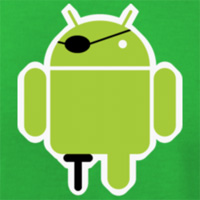 If you want to pirate an iPhone game, get ready to void your warranty and wade into the tricky world of jailbreaking. It’s not impossible, but it’s a deterrent for the average ethically-flexible gamer.
If you want to pirate an iPhone game, get ready to void your warranty and wade into the tricky world of jailbreaking. It’s not impossible, but it’s a deterrent for the average ethically-flexible gamer.
Want to nick an Android game, though? Simply tick a box in the phone’s setting, and drag an APK file across in Windows Explorer. Congrats, you’ve stolen your first Android app.
It’s leading to tons of app going free: 57 per cent of Android apps are free, versus 23 per cent on iPhone, according to Distmo. They’re using ads to pay for the game’s production, but while some banner clicks can pay off the budget on a virtual vuvuzela download, it’s rarely enough for full games.
Google has started to introduce some anti-piracy APIs, but it needs to get this software in the hands of every developer, pronto.
Fragmentation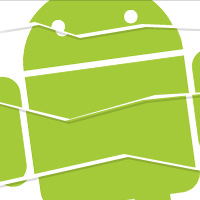 This is one avenue that would be almost impossible to fix at this late stage, but it's food for thought. There are about seven different iOS devices: from the big-slate iPad to the iPhone 4, and a couple of different types of iPhone and iPod touch.
This is one avenue that would be almost impossible to fix at this late stage, but it's food for thought. There are about seven different iOS devices: from the big-slate iPad to the iPhone 4, and a couple of different types of iPhone and iPod touch.
Compare that to the 50 (and counting) different devices running Android. Some have keyboards and some don’t, some have multi-touch and others can only detect one finger at a time. And how many have the processor power to handle your beefy 3D racing game, or the operating system update to make use of your cool new features?
It’s really tricky to keep everyone on an even plane, to make sure apps will work on any device you chuck it at, and that every user will even know what type of device they’re running. There's no obvious solution, but fragmentation in nonetheless bad news for developers and gamers alike.
